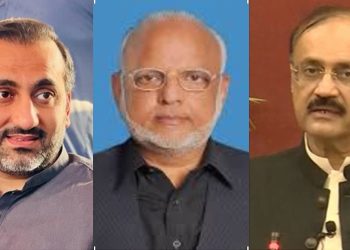In a worrying development, the World Bank has revealed in its report titled “Pakistan Development Update: Restoring Fiscal Sustainability” that the poverty headcount in Pakistan is estimated to have reached 39.4% in FY23- more than 5 percentage points higher than in FY22.
According to the World Bank, the considerable rise in poverty is caused by reduced economic activity and incomes, record-high food and energy costs, service disruptions, and losses of crops and animals due to the devastating floods in 2022. Poverty in the country is not only a matter of income, but also of multiple deprivations in health, education and living standards.
The global Multidimensional Poverty Index (MPI) measures acute multidimensional poverty across more than 100 developing countries. This is achieved by evaluating the overlapping deprivations of each person over ten variables in three equally weighted dimensions: health, education, and standard of living. Based on these estimates, 38.3 percent of the population in Pakistan is multi-dimensionally poor while an additional 12.9 percent is classified as vulnerable to multidimensional poverty.
Low economic growth, unequal income and wealth distribution, limited access to basic services, corruption, social exclusion, political instability, and natural disasters are a few of the major contributors to poverty. The main effects are social turmoil, low productivity, illiteracy, bad health, and malnutrition.
Global organizations such as IMF, World Bank and Asian Development Bank have already warned Pakistan that protracted and elevated food and energy price inflation, in the absence of significant economic growth, could lead to social displacement and have a negative impact on welfare, particularly for the poorer households with already depleted savings and lower incomes.
One of the key causes of Pakistan’s inability to stop the country’s escalating poverty is an unfair taxation system. The ingrained injustice that has been built into our tax system—often by design—is one of its biggest problems. Those, who are documented in the tax net whether voluntarily or as a result of the nature of their employment or business, pay a lot. In contrast, people who can escape documentation have long been able to get away with paying very little or nothing. To make matters worse, many of them have regularly received amnesties of one kind or another from the state.
In fact, when Caretaker PM Kakar met with IMF chief Kristalina Georgieva on the sidelines of the UN general assembly, he was only the most recent head of state to be told pretty bluntly to tax the rich and protect the vulnerable. Sadly, neither civilian nor military regimes have ever bothered to put a fair tax system into place. Even now, with the threat of sovereign default hanging over the country and the lender of last resort pushing for an efficient tax regime, there is little possibility that policymakers will actually follow the right path by taxing the untaxed through an expansion of the tax net, and protect the vulnerable.
As things creep toward a tipping point, if it’s any comfort, at least the public will be able to identify the culprits who push them over the precipice.






























